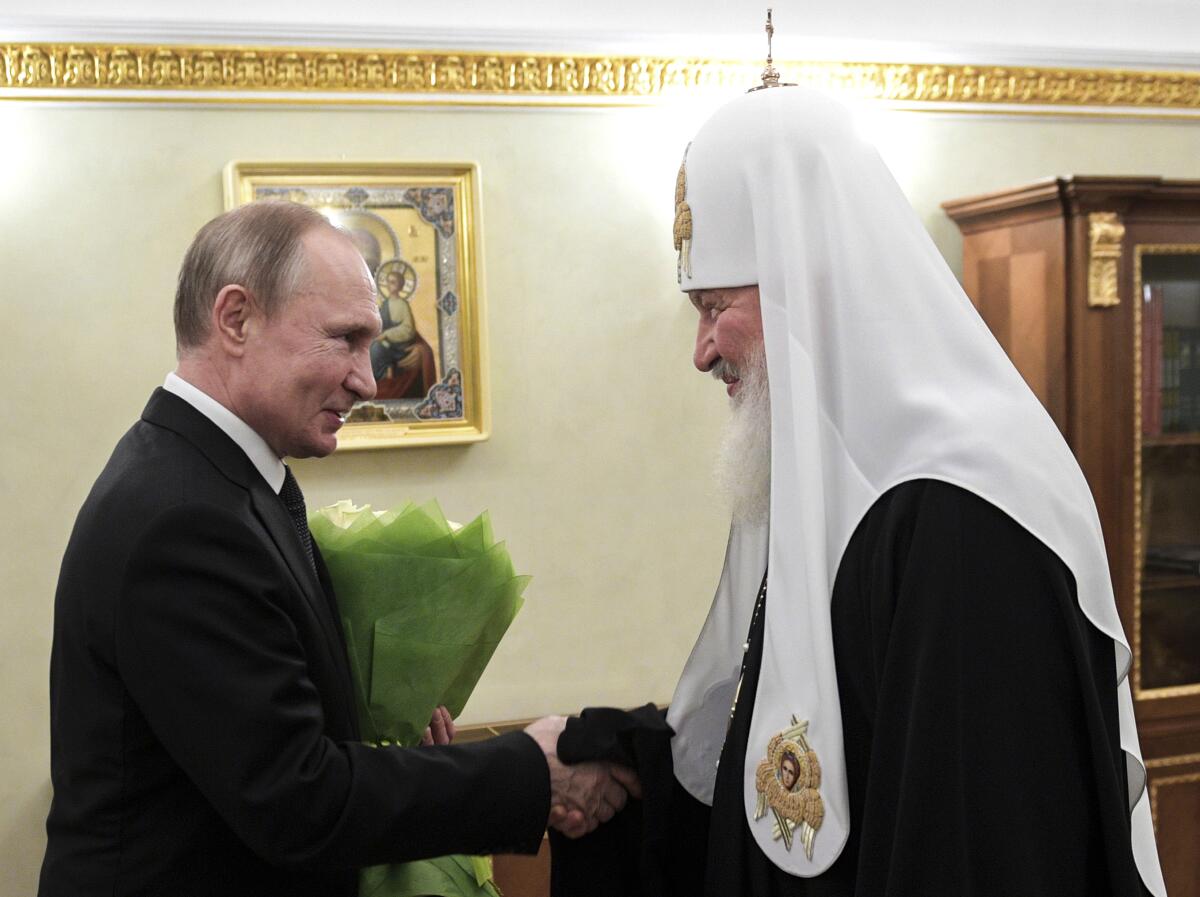Letters to the Editor: Religious leaders supporting war and genocide is nothing new

- Share via
To the editor: Amid outrage over events in Ukraine, Randall Balmer objects particularly to the blessing given to Vladimir Putin’s invasion by the Russian Orthodox Church. He’s on to something here.
Any international relations graduate student could sketch out a serviceable, even pragmatic, rationale for any irredentist claim a nation might make against a neighbor. Conflict is not abhorrent. Genocide is.
The secret sauce in this war — and perhaps all wars of conquest — is the quiescence of a citizenry, first in the mission itself, and then in what inevitably becomes justification of flagrantly disproportionate means in pursuit of elusive ends.
Popular support for brazen aggression is usually manufactured by asserting a religious claim or an animating mythic idea. Wars of annexation, dehumanizing labor systems and even ethnic cleansing have all been given godly sanction.
We would all be wise to consider Adam Smith’s admonition: “Virtue is more to be feared than vice, because its excesses are not subject to the regulation of conscience.”
David DiLeo, San Clemente
The writer is a professor emeritus of history and humanities at Saddleback College.
..
To the editor: Balmer should know that his statement, “Those who claim to be Christians have been complicit in violence and evil,” is a “no true Scotsman” fallacy. As an Episcopal priest, he should also know that anyone who claims to be a Christian is a Christian, regardless of their behavior.
Simply put, this “appeal to purity” is an insidious cop-out, shirking collective responsibility by questioning the faithfulness of another of the same religion. Religiosity that is focused on the behavior of others instead of ourselves is doomed to sectarian dehumanization and tragic failure.
The solution is to set a positive example by making mundane, common-sense arguments that overlap with one’s religious convictions. Then, if we express our moral convictions based on the knowledge that our beliefs are strongly integrated with our emotional coherence, we are in a better position to examine the weaknesses in our own position, and thus more effectively address the positions of others.
Arthur D. Wahl, Port Hueneme





